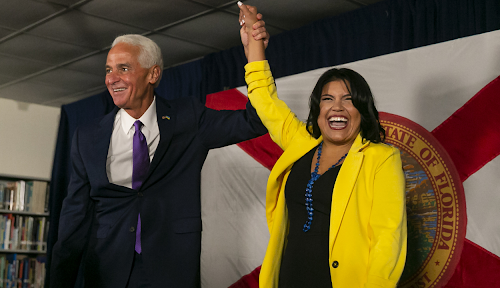The 11th U.S. Circuit Court of Appeals rejected a request for the full court to hear a case concerning emails sent to Florida lobbyist Marion Hammer.
Marion Hammer filed a lawsuit against California attorney and mediator Lawrence Sorensen and three other men in 2018 alleging that emails they sent to her following the shooting at Marjory Stoneman Douglas High School violated Florida’s state laws concerning cyberstalking, harassment and the intentional infliction of emotional distress.
As Stephen C. Phillips, a Ph.D. candidate at the University of Florida, told the Florida Political Review, Hammer has been a gun rights lobbyist in Florida for decades and served as president of the National Rifle Association in the 1990s.
“Marion Hammer is one of the most powerful lobbyists in the entire country,” Phillips told the Florida Political Review. “There are many lobbyists in Tallahassee but few (if any) are as powerful or influential as Marion Hammer.”
U.S. District Judge Robert Hinkle dismissed Hammer’s case against Sorensen in November 2018.
Sorensen sent two emails 30 minutes apart to Hammer’s publicly listed email address available online at the Florida Association of Professional Lobbyists’ website. The emails contained images of gunshot wounds, including those sustained by President John F. Kennedy, as well as Sorensen’s name and address.
In his ruling, Hinkle argued that although Sorensen’s sending of the emails and photographs was “inappropriate, indeed disgusting,” these emails were protected under the First Amendment.
Hammer appealed the decision.
In a 51-page brief to the Atlanta-based 11th U.S. Circuit Court, her lawyers focused on privacy rights arguing for every citizen’s right to be “let alone.”
In August 2020, a three judge panel of the 11th U.S. Circuit Court composed of Chief Judge William Pryor and Judges Robin Rosenbaum and K. Michael Moore denied Hammer’s appeal, citing a lack of facts. The panel pointed out that to be considered cyberstalking, the emails would need to have been sent without a “legitimate purpose.” In this case, the purpose was clearly to attempt to dissuade Hammer from continuing to support assault rifles.
In order for Sorensen to have been stalking — intentionally inflicting emotional distress — his actions would have had to be “outrageous,” which the court did not find them to be. The court’s ruling was not based on the First Amendment.
In September following the ruling, Hammer requested her case be heard before the full 11th U.S. Circuit Court of Appeals, in what is referred to as an en banc hearing.
Last month the court denied this request.
Tallahassee lawyer Thomas Findley of Baker Donelson who represented Sorensen in the case told the Florida Political Review that the case is now finished in both the trial court and the intermediate appellate court of the 11th U.S. Circuit Court of Appeals.
“Hammer has not sought certiorari in the United States Supreme Court, but I think she could try that up to the beginning of December,” said Findley. “However, I think it’s highly unlikely that they would consider the case.”
Findley said he doesn’t anticipate Sorensen facing any disciplinary action from the California Bar either, but that if he does, he will have a strong First Amendment defense.
Hammer’s legal team was contacted multiple times by Florida Political Review and did not provide any comment.
Featured image: A gavel and sound block. Unedited image by Blogtrepreneur used under a Creative Commons license. (https://bit.ly/3eVp8Ei)
Check out other recent articles from the Florida Political Review here.





